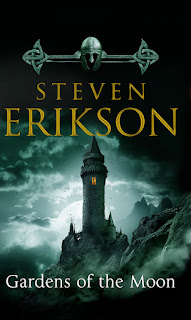
 The Void Trilogy
The Void Trilogy
is really a sequel to Hamilton's earlier
Commonwealth series
and should be read only after reading those earlier books--starting with Pandora's Star.
So it's 1500 years after the Starflyer War, and the Commonwealth is a very different entity from the rich mans paradise that existed in the previous novels. Humanity has spread far into the galaxy, and in the process splintered into various factions, each with their own idea of how mankind should evolve. Colony ships have passed beyond the known regions of space, but little to no contact has occurred between them and the remaining Commonwealth.
One artifact that humanity has stumbled across is the Void, an expanding region of space which consumes all in its path. As it turns out the Void has existed for millions of years, with countless species encountering it, fearing it, and studying it so that they might stop its growth. One species particular has devoted itself to the destruction of the Void, having launched a failed war against it millions of years past, and now guarding its borders so that none may enter.
Then a human named Indigo, while visiting the boundary of the Void, begins to dream of a world without technology, whose human inhabitants are able to shape the world around them with their thoughts. He shares his dream with Gaiafield, a sort of mental network for sharing feelings and experiences, and soon it is realized he is dreaming of a human population actually living within the Void.
This sets off a series of events that eventually lead to a sizable portion of humanity deciding that they wish to enter the Void. Most alien races are opposed, and the border guardians in particular have no intention of letting anyone enter, for it is believed that this would trigger a huge Void expansion-- eventually leading to the destruction of the entire galaxy if left unchecked.
One thing of note about this series is that a significant chunk of it takes place within the Void, in what would traditionally be labeled a fantasy setting. It tells the story of Indigo's dreams, for he dreams of a young man whose story is something of a heroes journey. Probably something like 30-40% of the series is dedicated to this story. It is very well done though, and does tie in nicely with the science fiction story taking place outside the Void.
Overall I feel that this was a nice improvement over his first Commonwealth series(which was already excellent). The pacing is much improved(particularly over
Judas Unchained
), and the characters are all interesting. And yes, some old characters do make appearances, even the SI eventually shows up.
9.2/10










